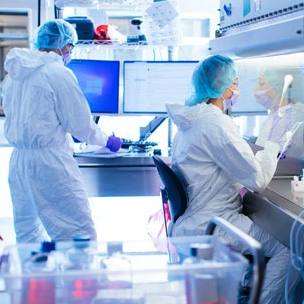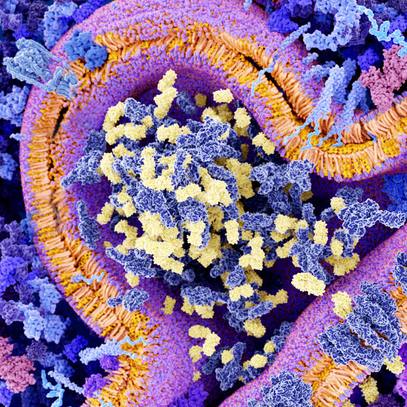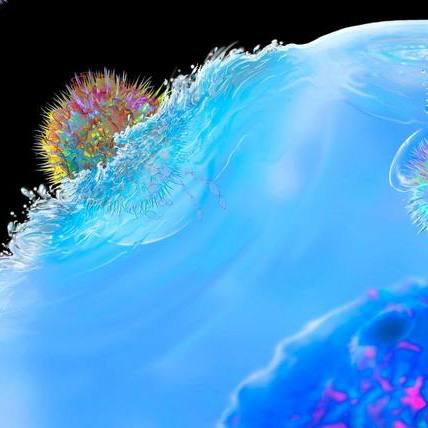-
Biotherapeutics
Advancing regenerative care through biomanufacturing
One of the challenges of integrating regenerative medicine into patient care is the time and regulatory rigor it takes to validate new therapies. Mayo Clinic's Center for Regenerative Medicine is working with industry collaborators to streamline the process of moving the latest tissue engineered and cellular products from bench to bedside. As part of its strategic focus on advancing biomanufacturing to accelerate the development of patient-ready solutions, the Center for Regenerative Medicine recently hosted a daylong series of virtual workshops with the Advanced Regenerative Medicine Institute (ARMI) BioFabUSA. The goal is to solidify a coalition of scientists, clinicians, engineers and manufacturers to enhance the delivery of new regenerative tissue therapies to the practice.
"The idea is to create an ecosystem in which members can access multidisciplinary expertise that would accelerate new product development and product usage," says Alissa Cornell, operations manager for Center for Regenerative Medicine in Florida. "The value came in bringing together people from all aspects of the discovery-translation-application spectrum. For example, if a scientist develops a knee implant, what kind of evidence and validation does the clinician need to have to feel confident in adopting the therapy into the practice? Having those answers could speed the manufacturing process."
One of the key challenges of manufacturing regenerative products is time and money. Patients may have to wait months for cells to be engineered utilizing expensive, technologically specialized equipment and expanded in the lab before they could be used in cellular therapies — time in which disease may progress. The workshop explored alternatives, such as off-the-shelf therapies, that could be manufactured on site and stored at room temperature. Off the shelf products are generally available when the patient needs them, which is especially important in cardiac and stroke care.
Mayo Clinic physicians and scientists discussed ways to further new tissue and cellular technologies with tissue engineering manufacturers, trying to understand how to scale up the process in a safe, cost effective and timely manner. The workshop focused ways to improve regenerative product design for use in cardiology, orthopedics, sports medicine, craniofacial, pulmonary and gastroenterology/hepatology.
"This workshop gave us the opportunity to share the status of pre-clinical and clinical trials involving the use of cell and cell derived therapies for lung diseases at Mayo Clinic," says Jorge Mallea, M.D., a pulmonologist at Mayo Clinic in Florida. "The impact of ex vivo lung perfusion on increasing the lung donor pool and future applications of this technology was discussed with the participants. I was particularly amazed to learn about the progress on lung scaffolds bioprinting. Together with the attendees, we looked at the future of cellular therapies and organ manufacturing. It was fascinating."
The workshop with ARMI BiofabUSA, a nonprofit, membership organization, is one way Mayo Clinic is exploring ways to work with academic and industry collaborators to create large-scale manufacturing. Ultimately, the goal is better address unmet patient needs by delivering tissue and cell engineered products in a timely manner in order to improve health and healing.
###










